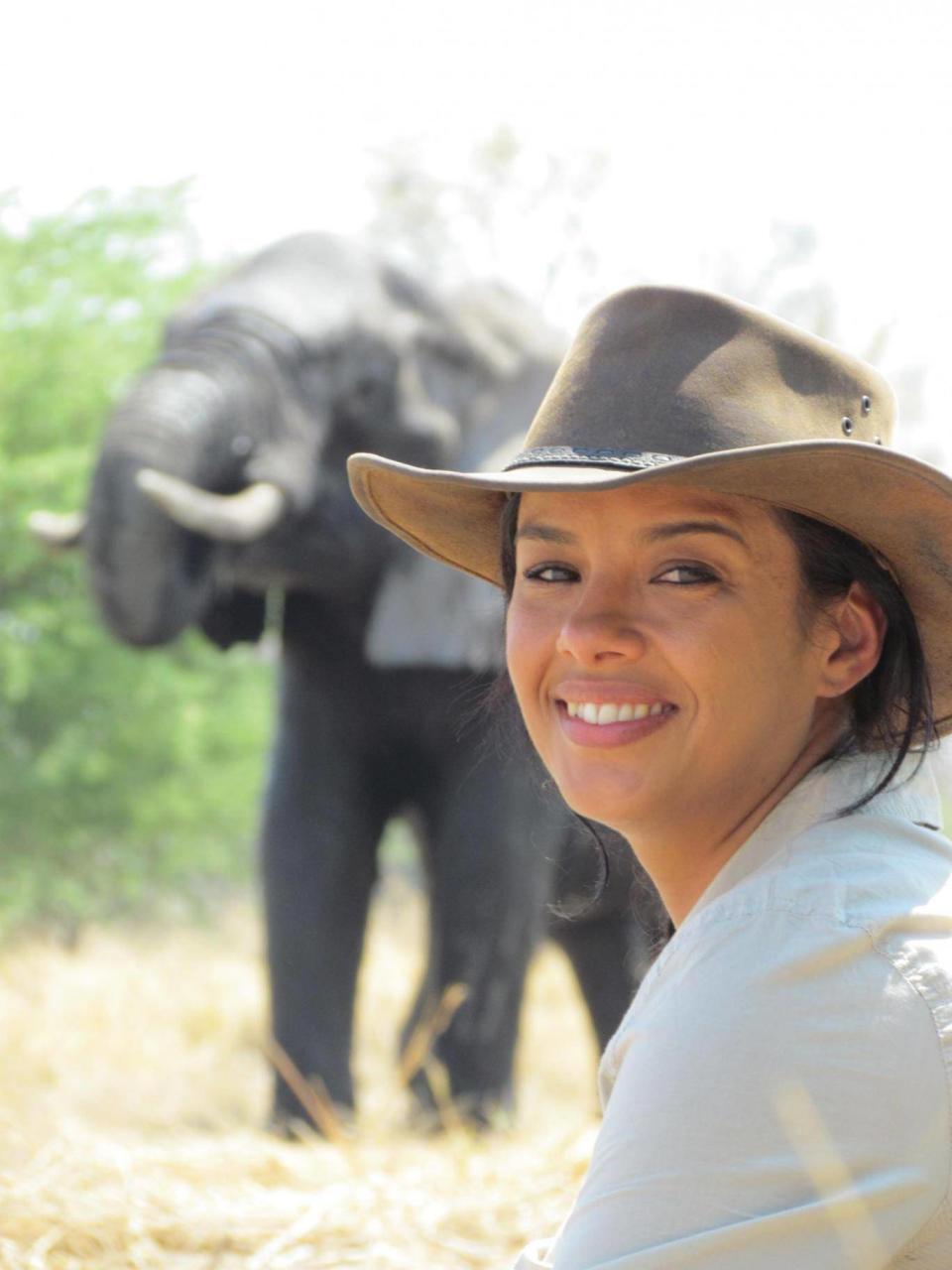Liz Bonnin: 'We must aim to make a difference'

Since David Attenborough's rallying call for us to do more to protect the environment aired at the end of 2017, Blue Planet II has been credited with not only changing public perceptions towards plastics, but influencing environmental policy.
Dubbed 'the Blue Planet effect', it's no longer enough for TV shows to simply celebrate our beautiful world. Now viewers must be taught how they can help preserve it.
It's a profound step forward, and one that's long overdue, according to Liz Bonnin, a BBC, ITV and PBS science and natural history presenter who is widely tipped to carry Attenborough's baton forward.
“The man is a genius,” Bonnin says. “Sir David just knows exactly how to impart stories, no matter how depressing.
”Blue Planet took an unflinching look at human impact on the environment and its shown that those of us working as communicators must be unafraid, and we must aim to make a difference.
“We've underestimated our audience, just giving them what they want to see, nature doing its thing. But as programme makers we are constantly evolving. Now it's vital we tell people the whole story, showing them that this is the reality, and this is what you can do if you care enough.”
Bonnin has 'cared enough' about nature since she was old enough to decide how she spent her time. Born in France to a French father and Trinidadian mother of Indian Portuguese descent, she spent her young life playing outdoors 'getting muddy and playing with animals' with her sister.
The family moved to Ireland when Bonnin was nine and she developed a passion for biology and chemistry at school, going on to study Biochemistry at university. Later, while her career as a TV presenter flourished on shows such as Top of The Pops, she took time out to complete a Masters in Wild Animal Biology with the Royal Veterinary College and Zoological Society of London.
“I relish learning, that's why I love my job so much,” says Bonnin, whose TV career since has drawn heavily on her academic expertise, taking her from the Galapagos to India. “I get to be up close to incredible wildlife and meet the science and conservation heroes on the frontline who are caring for our planet. It's my dream.”
Bonnin's recent work with international conservation charity Space for Giants saw her spending time in North Central Kenya, where the organisation has helped bring about an 84% reduction in elephant poaching.
The stark findings of 2016's Elephant Census revealed 30% of Africa's savannah elephants had been wiped out in just seven years. Bonnin spent time with Space for Giants, who work across Africa protecting elephants through a various methods, including training rangers, strengthening legal protection, and stopping human-elephant conflict.
“I felt I had a good knowledge of elephant-protection work before, but it was truly eye opening,” Bonnin says. “I spent time with the team who build and maintain electric fences to help prevent human-elephant conflict, and learnt how important it is that farmers' attitudes to elephants have changed.

“We are trying to save elephants in a landscape where people are trying to put food in their mouths. One elephant can wipe out a farmer's entire harvest. Space for Giants understand that to prevent conflict, people who live alongside elephants must see value in them and benefit from them. I learnt what it really means to conserve animals on the ground.”
Bonnin says the most powerful lesson of all came not in the bush, but in the court room, while shadowing Faith Maina, Space for Giants' Wildlife Crime Court Monitoring Officer.
“Faith’s incredible dedication made me feel small.” Says Bonnin. “She is so brave and courageous, it made me feel I wasn't doing enough to protect wildlife.
“I learnt about the gaps in judicial system, how much can go wrong even when poachers are caught, and how they can get off without punishment. That was the biggest surprise.”
Just as Blue Planet II shined a light on plastic waste, Bonnin sees the sensitivities surrounding elephant protection as examples of aspects of a story that must be heard. Only then will they start to change. And only then will more elephants be protected.
“No human being wants to be told what to do,” she says. “But my job as a communicator isn't finger wagging, it's about telling more stories. Especially stories with a sense of ownership, so that the audience can see that there is much we can all do.
“Historically, as a global species, we have experienced censorship and manipulation when it comes to environmental issues, but now we are at a tipping point when it comes to the health of our planet. We have no choice, there's no time left to waste. So my role is to shake people on the couch up enough to take action.”

